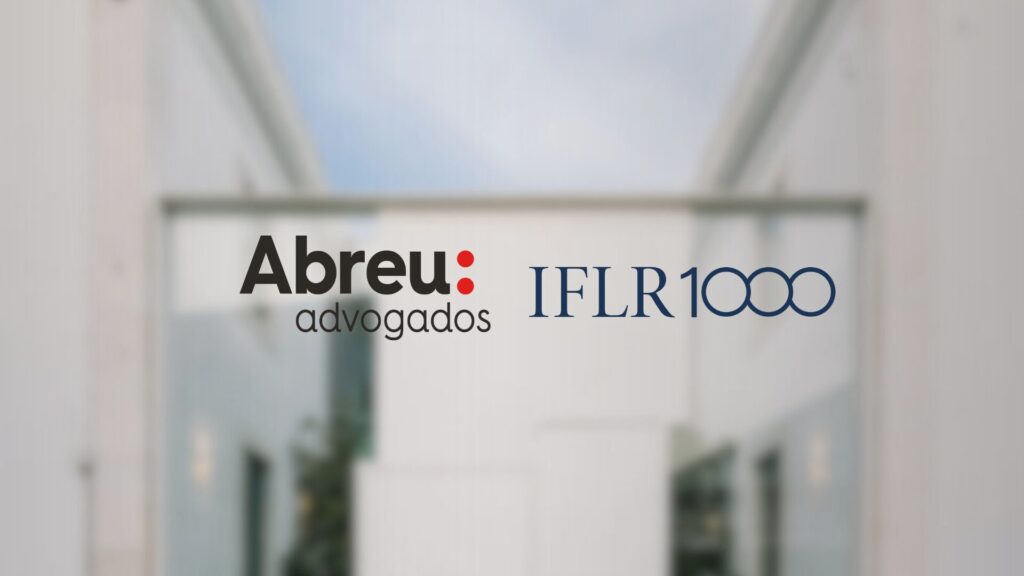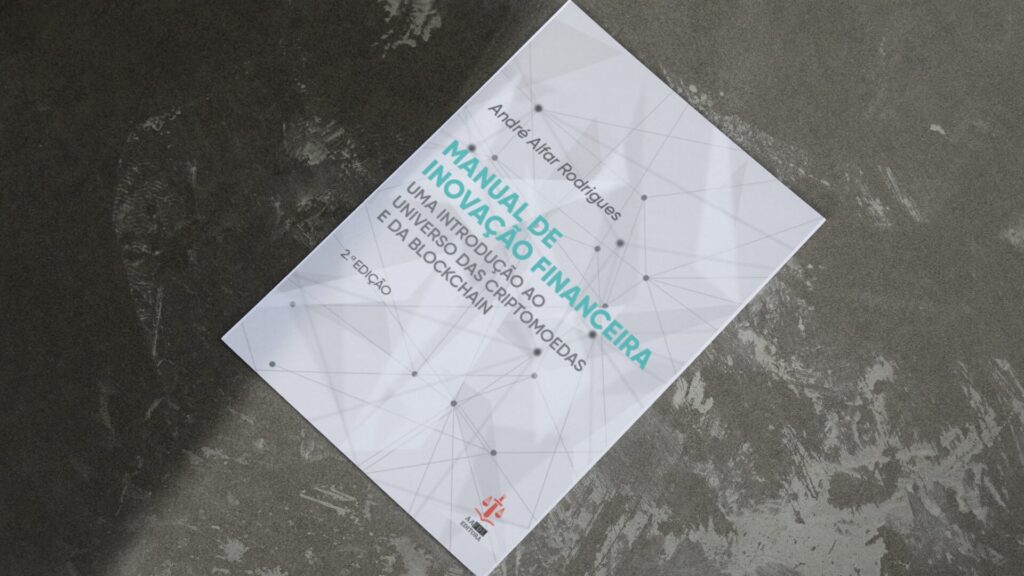Proposal to implement the European Regulation on the Crypto-assets Market (MiCA) in Portugal
On 16 September, Draft Law no. 32/XVII/1st was presented to the Portuguese Parliament, implementing Regulation (EU) 2023/1114 on crypto-asset markets (the “MiCA Regulation”) into national law (the “Proposal“).
The Proposal aims to achieve the domestic implementation of the MiCA Regulation, which has been fully applicable since 31 December 2024, by adapting national legislation and defining competent authorities, authorisation procedures, sanctioning regime and transitional rules.
- Who does it apply to?
In accordance with the MiCA, the Proposal aims to standardise the rules applicable to:
- Offerors and persons seeking the admission to trading of crypto-assets;
- Issuers of asset-referenced tokens or e-money tokens; and
- Crypto-asset service providers (“CASPs”).
The Proposal’s main objectives are:
- The protection of crypto-asset holders;
- Maintaining market integrity, as well as financial stability and the smooth operation of the associated payment systems; and
- Mitigating risks related to crypto-assets that aim to stabilise their price in relation to a specific asset or a basket of assets, namely for monetary policy.
- Amendment to the Securities Code and the Complaints Book regime
The Proposal also provides for the amendment of:
- The Securities Code, integrating CASPs, crypto-asset issuers, other crypto-asset service providers and crowdfunding service providers into the supervision perimeter of the Portuguese Securities Market Commission (“CMVM”);
- Decree-Law no. 156/2005, which regulates the obligation to have a Complaints Book, also covering CASPs and issuers of crypto-assets.
- Competent authorities for supervising the crypto-assets market
As expected, the Proposal suggests a division of supervisory powers between the Bank of Portugal (“BoP”) and the CMVM.
Within this framework, the BoP would be responsible for supervising the following matters:
- Authorisation to offer asset-referenced tokens to the public and to seek their admission to trading;
- Authorisation of CASPs;
- Acquisition of CASPs;
- Significant CASPs;
- Requirements to be met by all issuers of e-money tokens and the regime applicable to significant e-money tokens;
- Prudential requirements and governance mechanisms; and
- Subcontracting of operational functions and orderly liquidation of CASPs.
On the other hand, the CMVM would be the authority responsible for:
- Supervising public offerings of crypto-assets that are neither asset-referenced tokens nor e-money tokens;
- Supervising the admission to trading of crypto-assets that are not asset-referenced tokens or e-money tokens, including on platforms that have Portugal as their home Member State;
- Prevention and prohibition of market abuse linked to crypto-assets;
- Supervision of obligations relating to specific crypto-asset services (such as custody and administration on behalf of clients, operation of a crypto-asset trading platform, exchange of crypto-assets for funds or other crypto-assets, crypto-asset advice and crypto-asset portfolio management, among others);
- Supervision of CASPs duties;
- Supervising the safekeeping of crypto-assets and client funds;
- Supervising compliance with complaint handling procedures;
- Supervision of the application and maintenance of policies and procedures relating to the identification, prevention, management and disclosure of conflicts of interest.
Supervisors must also establish mechanisms for co-operation and exchange of information with the Insurance and Pension Funds Supervisory Authority (“ASF”) in relation to requests for opinions on the legal qualification of crypto-assets.
- Contact points for cross-border co-operation
Under Article 4 of the Proposal, the BoP and CMVM also share competences in terms of cross-border supervision, according to the following division:
- The BoP will be the contact point in matters relating to issuers of asset-referenced tokens, issuers of e-money tokens and CASPs, as well as with the European Banking Authority;
- The CMVM will be the contact point for cross-border administrative co-operation between competent authorities in matters relating to market abuse and offers of crypto-assets other than asset-referenced tokens or e-money tokens, as well as with the European Securities and Markets Authority.
- Authorisation regime
- CASPs
The authorisation and revocation regime for CASPs is based on a system of shared competence between the BoP and the CMVM, in accordance with the provisions of the MiCA Regulation.
It is not expected that the Portuguese supervisory authorities with competence in this area, such as the BoP and the CMVM, will diverge in any significant way from the terms defined in European legislation for the procedure for applying for authorisation of these entities, including, in addition to the MiCA Regulation, Delegated Regulation (EU) 2025/304 , Delegated Regulation (EU) 2025/305 and Delegated Regulation (EU) 2025/306.
Nevertheless, in order to integrate these rules into the Portuguese legal system, the Proposal adapts the procedure laid down in the MiCA and the adoption of regulatory standards by the BoP and the CMVM is expected, in accordance with the provisions of Article 29 of the Proposal.
Under the terms of the Proposal, the authorisation process consists of the following steps:
- Submission of the authorisation request to the BoP;
- Communication of the authorisation request by the BoP to the CMVM;
- The CMVM issues an opinion within 10 to 15 days, depending on the case, as defined in the MiCA Regulation, when it identifies reasons that prevent a favourable decision.
- If the CMVM does not issue an opinion within the same period, it is considered to have no objections to a favourable decision.
The BoP also has a duty to notify the CMVM of acts of administration, revocation and amendment relating to CASPs.
- Issuers, offerors and other persons related to the organisation and operation of crypto-asset markets
The relevant authorisation procedure for these activities is already delimited by the provisions of Delegated Regulation (EU) 2025/1125, which complements the MiCA Regulation and establishes the regulatory technical standards that specify the information to be provided in the application for authorisation to offer asset-referenced tokens to the public or to seek their admission to trading.
The contribution of the European Banking Authority and the influence its standards, guidelines and recommendations may have on national authorities will also be relevant in this process.
- Employees of crypto-asset service providers
The Proposal imposes specific rules on the employees of CASPs who provide advisory services, with a view to ensuring that advice is provided by professionals with appropriate qualifications and experience, guaranteeing high standards of investor protection.
Therefore, crypto-asset service providers that provide advisory services must:
- Clearly define the responsibilities of each employee;
- Ensure that employees have the necessary professional qualifications and experience;
- Provide the CMVM, on request, with documentation proving the knowledge and skills of employees;
- Carry out, at least once a year, an assessment of the adequacy of employees’ knowledge and skills, identifying any training or experience needs and implementing, where necessary, the appropriate corrective measures;
- Include in compliance monitoring reports an analysis of compliance with the applicable assessment criteria.
- Protection of crypto-asset holders
The Proposal introduces various investor protection mechanisms, including:
- Right to bring popular action;
- Possibility of setting up associations for the protection of crypto-asset holders;
- Complaints handling procedures;
- Compulsory access to alternative dispute resolution organisations.
The provision and adoption of these mechanisms by the entities covered is a novelty and should be considered in the authorisation processes.
- Penalties
The Proposal establishes a framework of administrative offences applicable to non-compliance with the obligations laid down in the MiCA Regulation and in national implementing legislation.
The following behaviours, among others, constitute administrative offences:
- Breach of communication and information duties to the competent authorities and the public;
- Irregularities in public offers or in the admission to trading of crypto-assets;
- Issuing asset-referenced tokens or e-money tokens without prior notification or authorisation;
- Provision of crypto-asset services without authorisation or in breach of the prudential and conduct duties imposed by the regime;
- Practices considered as market abuse, such as the use or disclosure of inside information, the omission of relevant information or market manipulation.
- Applicable fines
According to what is set out in the Proposal, infringements of the provisions of the new regime could result in fines of up to €5,000,000 (five million euros).
The fines may also be increased according to the turnover or economic benefit obtained, without prejudice to a set of ancillary sanctions, in line with those applicable to financial organisations, including a ban on holding office, publication of decisions and restitution of undue advantages.
The Proposal also provides for the application of precautionary measures to protect investors and the market, including the preventive suspension of activities or functions, the seizure and freezing of securities and crypto-assets, regardless of their location, and the preventive closure of premises where unlawful activities are carried out.
- Transitional regime
- Pending applications
Applications for initial registration and amendments under Law no. 83/2017, which establishes measures to prevent money laundering and terrorist financing (“AML/CTF Law”), will be extinguished due to impossibility or supervening uselessness if pending before the BoP as of 30 December 2024
- Authorised entities, with activity started and reported
For entities that were registered with the BoP on 30 December 2024 under the AML/CFT Law and that have started and reported their activity, the Proposal provides for them to continue to carry out the activities for which they are qualified until 30 December 2025, being considered as CASPs during this transitional period.
Until the end of this transitional period, entities must notify the BoP of any changes to their corporate name, trade name, registered office, jurisdictions of activity, members of the management and supervisory bodies, holders of direct or indirect shareholdings, and their respective ultimate beneficial owners.
Changes of another nature, namely those concerning the corporate purpose, type of activities or shareholding structure, shall result in the lapse of the registration and the loss of the benefit related to the transitional period.
- Authorised entities, but with no activity started and communicated
Entities which, as of 30 December 2024, had not started and reported their activity, will have their registration lapse and will be prohibited from carrying out activities with virtual assets until they obtain authorisation under the terms set out in the Proposal.
Thus, the transitional period established in Portugal, until 30 December 2025, is shorter than the maximum provided for in the MiCA Regulation. Although the duration of the transitional period may still be adjusted in the course of the parliamentary discussion of the Proposal, the effective period for obtaining authorisation by entities already licensed and operating may prove to be short, particularly considering that the Proposal must still be debated and approved before any authorisation process under the new regime can begin.
- Next steps
The Proposal is expected to be discussed and approved by Parliament in the coming months. Relevant amendments to its content may yet emerge, potentially affecting entities intending to benefit from the new regime.
The Finance team at Abreu Advogados is closely monitoring the approval process of the Proposal and is available to assist entities subject to this regime, including with the authorisation application process and with the adaptation to the new legal and regulatory requirements.












































